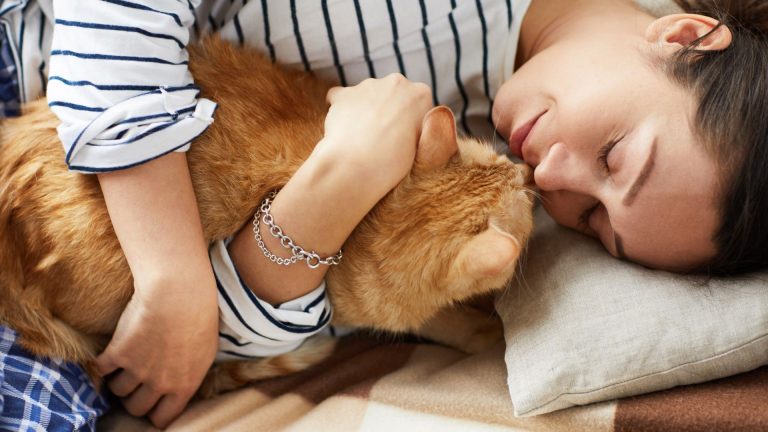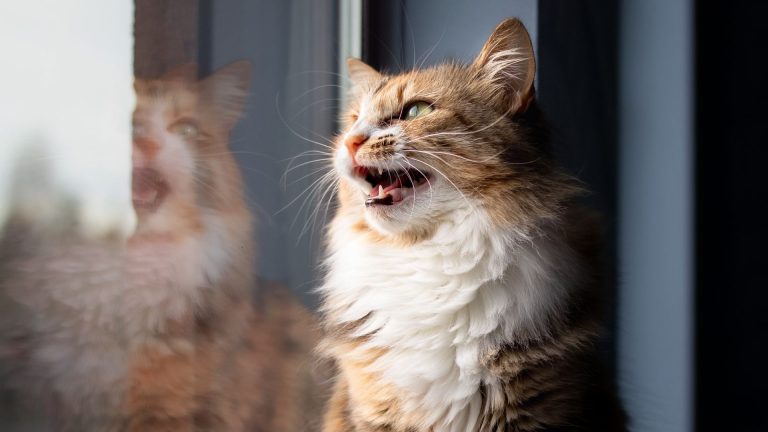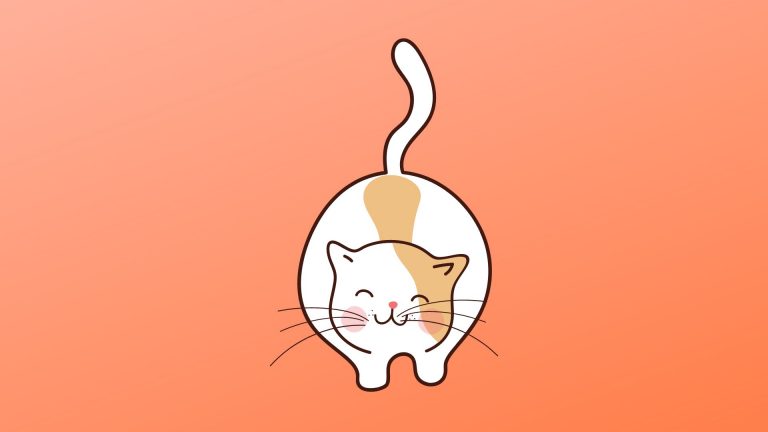7 Reasons Why Is My Cat Peeing On Furniture + Prevention Tips!
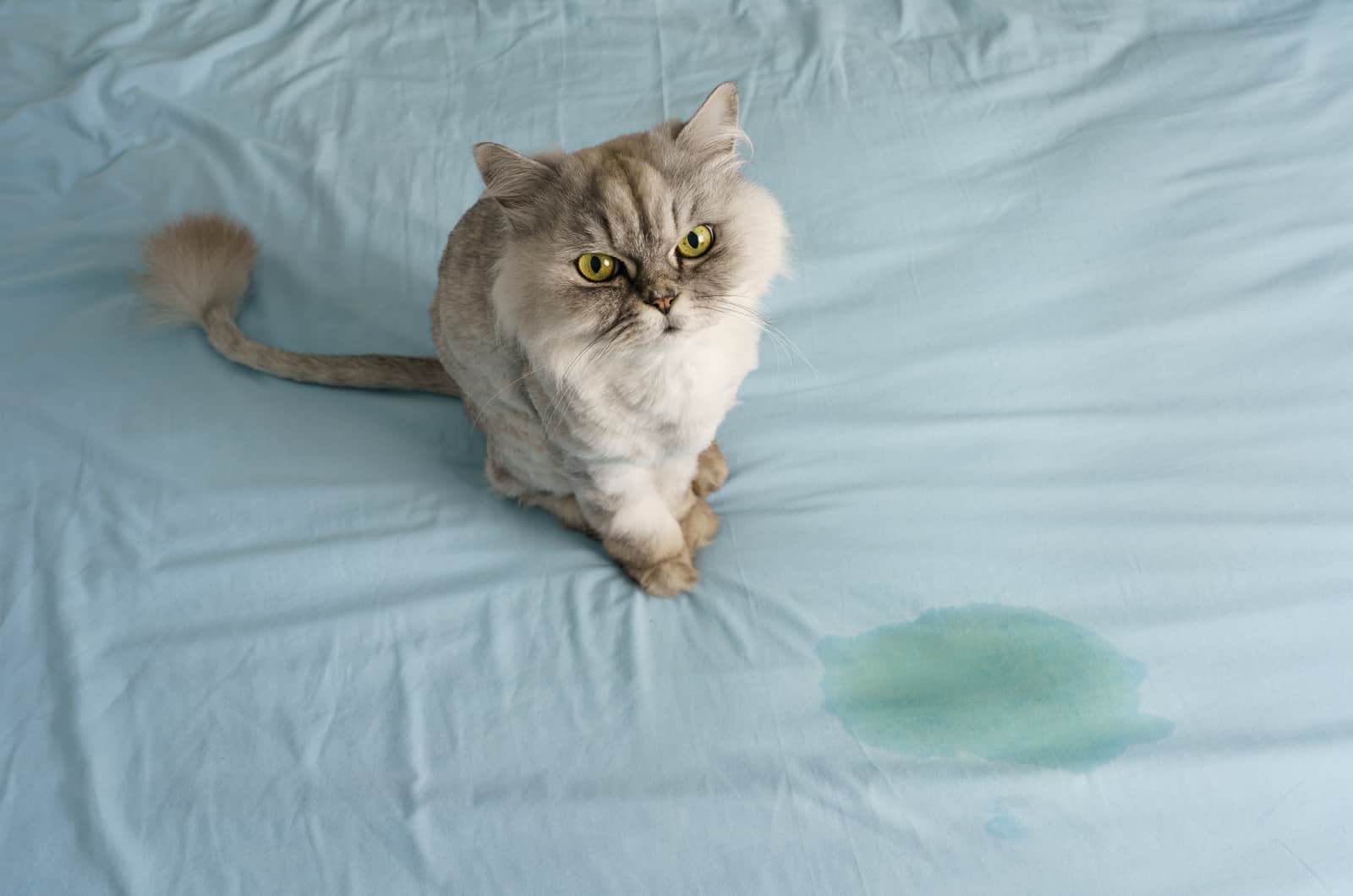
Our lovely furry friends can be so sweet and cute that you simply can’t be mad at them when they do something they shouldn’t. However, sometimes it is very hard to stay calm when they disrupt your home, such as by peeing on furniture.
Cat urine is very strong and may also be difficult to remove. The worst thing of all is that the unwanted behavior may continue and the job of every owner is to find the underlying cause for that particular behavior.
Usually, cats want to tell us something through their behavior. Just like that, cat peeing on furniture may be the reason for many things, from medical conditions to emotional issues.
So, if you read the following text, you’ll find out why is your cat peeing on your furniture as well as how to stop this from happening. Let’s start, shall we?
Why Is My Cat Peeing On Furniture?
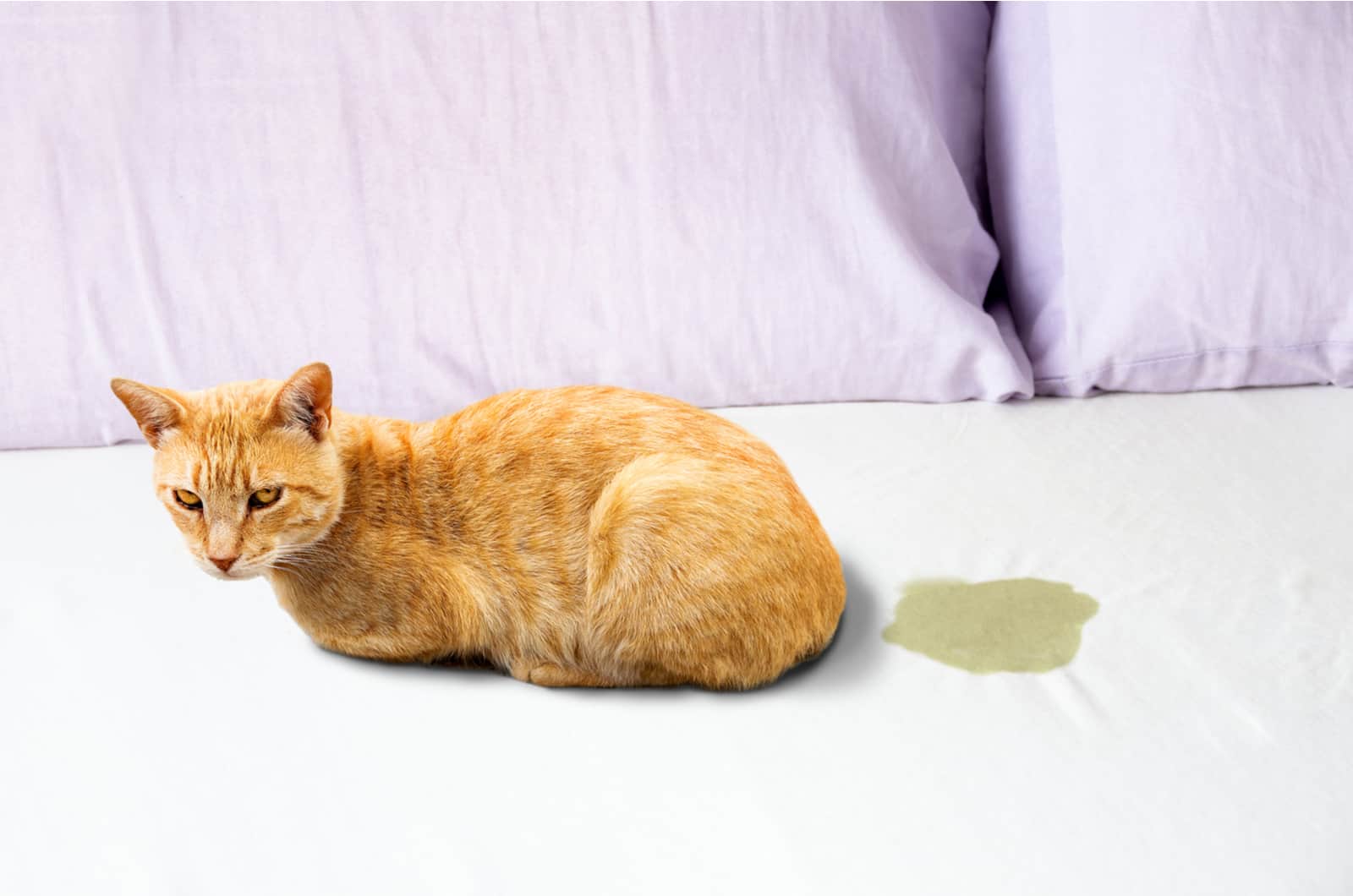
Cats are known to be very clean animals. Usually, they don’t want to urinate or defecate everywhere or even eat or drink from a filthy bowl. So, what’s the reason for your cat peeing on furniture?
Usually, it means that something is wrong. Peeing outside the litter box may be a consequence of one of many diseases which need to be treated right away. Besides that, there are many other possible reasons, such as problems with a litter box, emotional problems, and similar.
Whatever it is, it’s highly important to find the underlying cause for this particular problem, as well as how to prevent it from happening again because it’s very unhygienic to have your furniture or even bed and couch, the places where you sleep and relax, peed on.
If you’re dealing with this problem then you should read the following text in order to find out seven possible reasons for cat’s peeing on furniture!
7 Possible Reasons For Cat’s Peeing on Furniture
Marking The Territory
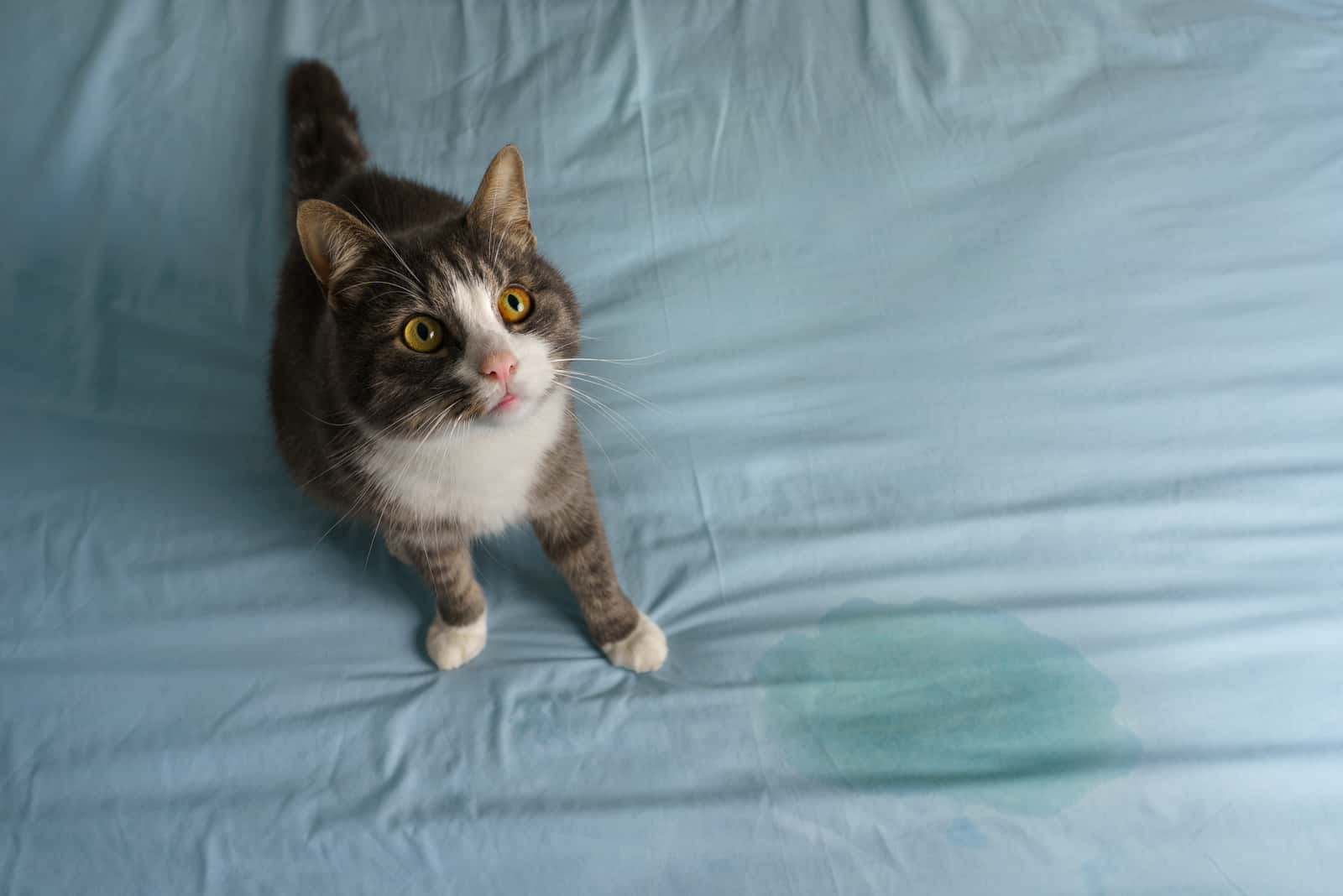
Cat spraying is a very common behavior in cats when it comes to marking their territory. It’s very different from normal peeing and it’s easy to recognize.
When marking their territory, cats hold their tails high and direct their butts towards the target. While spraying, you will notice their tail shaking.
However, this behavior is common for both male and female cats that want to attract a mate, especially if they’re not spayed or neutered. It’s their natural instinct, but if you want to prevent that behavior from happening, then you should have your cat spayed or neutered while it’s still young.
Besides that, territory marking is also likely to happen when you bring your cat a roommate. Your cat may feel in danger or uncomfortable suddenly living with a new cat or other pet. While spraying, cats leave urine on the furniture which is full of pheromones.
Because of that, other cats or pets will know who did it because every cat has a unique pheromone smell. Male cats are more likely to show dominance and mark their territory in order to show their new roommate who’s in charge in that house.
Cat’s Medical Issues
If your cat pees outside the litterbox, on your furniture for example, that may be due to different medical problems which require your attention.
That is why it’s very important you pay attention to that particular cat’s behavior in the first place. You should react fast to help your feline recover as soon as possible.
Here are some of the medical issues that may lead to inappropriate urination:
🐾 Urinary Tract Infection (UTI) – this health issue may be really painful for your kitty and it also includes frequent urination. Sometimes, your cat can’t make it to the litter box which leads to them urinating around the house. If you believe that your cat has a UTI, it’s highly important you contact your vet in order to treat it properly with antibiotics or some other medications.
🐾 Bladder stones – this is another extremely painful issue that may be the cause of your cat peeing on furniture. It’s easy to recognize by blood in the urine which may appear. However, this problem is urgent and it requires special care and a proper treatment prescribed by your vet.
🐾 Arthritis – this is an inflammatory disease that affects the cat’s joints and bones. If your cat suffers from arthritis, don’t be surprised if they can’t make it to their litter box. This conditions results in difficulties with moving around, as well as jumping in and out of the litter box.
🐾 Feline Cognitive Dysfunction – this is a serious disease that affects a cat’s brain and memory. It’s more common in older cats which may cause them to forget the exact location of their litter box or even how to use it. Consequently, this may lead to your cat peeing around the house out of necessity.
Other medical conditions that have frequent urination as a symptom are: kidney disease, urinary blockage, liver disease, diabetes, and similar. However, each of these medical issues requires special vet care in order to get your cat back on track.
Distressed Cat
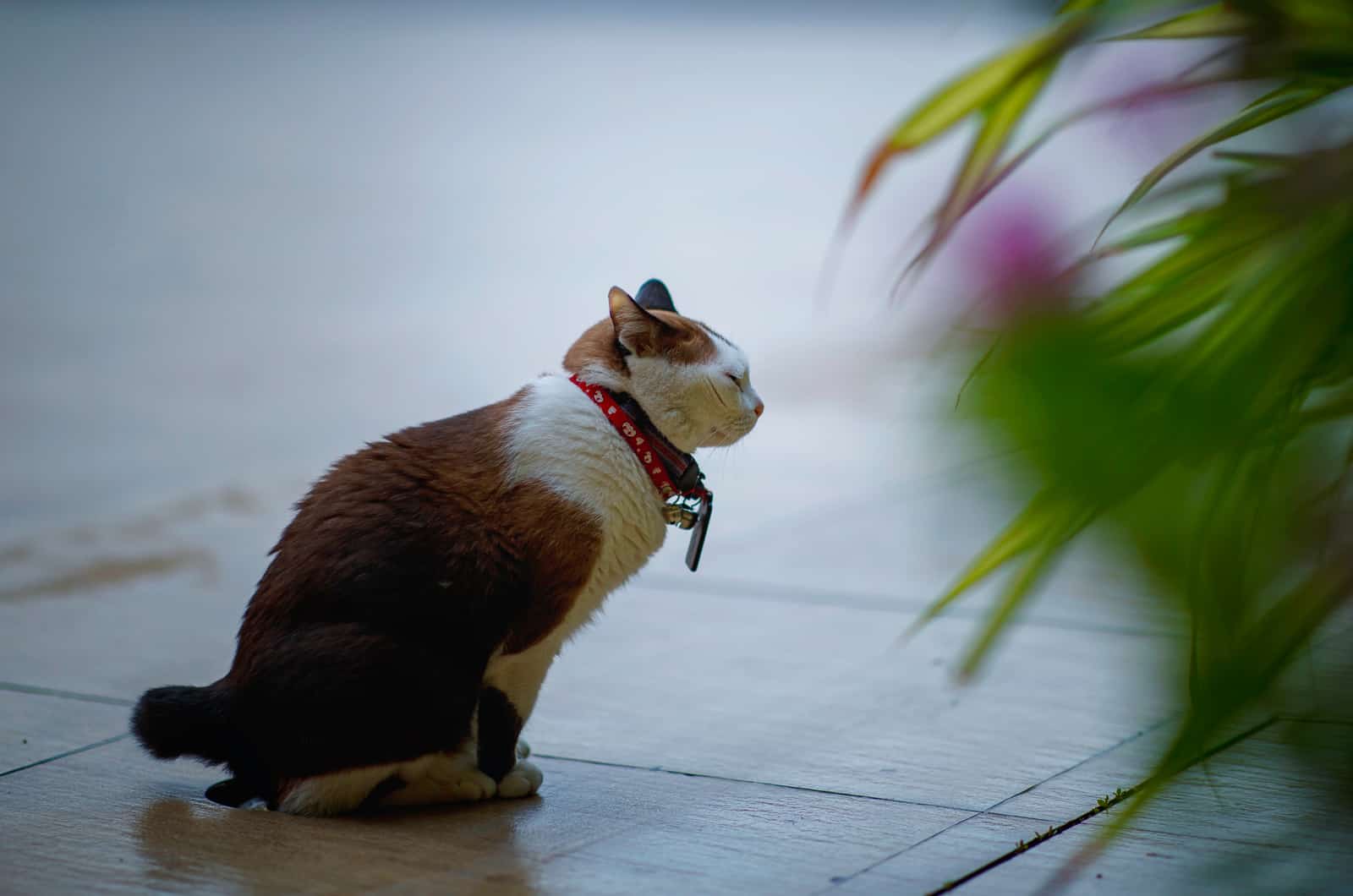
Your cat may be distressed for many reasons that may affect their routine and that may lead to different unwanted behaviors including inappropriate urination.
These reasons may be due to the new pet, moving house, or separation from another pet or even a family member.
Cats don’t usually like change, therefore even the slightest one may cause your cat to feel unsatisfied, which it’ll show through peeing on furniture or other unwanted behaviors.
The best solution is to consult with your vet on what to do. They may prescribe anti-anxiety medications that may help your cat calm down until they get used to the new routine. You may also provide your cat with a calm and quiet place with different toys that may redirect their attention.
If you’re interested in learning how to make your cat more relaxed, check out: 11 Safe And Effective Over The Counter Sedatives For Cats
Cat’s Litter Box Problems
Although cats may be easily trained to use their litter box properly, there are times when they decide to pee or poop outside of it. However, there are certain reasons for that.
Cats are very clean animals, and they usually won’t make a mess outside of the litter box. But, if you notice your cat peeing on furniture, that may be a consequence of different litter box problems which require your attention.
Litter Box Location
The best location for a cat’s litter box is in a calm and quiet place, far away from cat food, loud noises, and crowds. Just like humans, cats need their privacy too.
If your cat’s litter box is located in a disturbing area, it’s most likely that your cat will urinate on your furniture instead of the litter box. Also, some cats don’t like low litter trays because they don’t feel safe. They’re more comfortable in high places that allow them to see everything.
Besides that, access is also important. If the litter box is located in an inaccessible place, your cat usually won’t even try to get to it. So, I advise you to put the litter box in a calm and quiet area of the house that will allow your cat to have privacy while doing the job.
Litter Box Size
Litter box size is crucial when it comes to cats. If the litter box is too small for them, they won’t feel comfortable in it and that may lead them to leave their mess somewhere else.
The best thing you can do is to provide your cat with a litter box that is 1.5 times larger than their body. In that way, your cat will have enough space to move in the litter box and she’ll be comfortable.
Also, make sure that the sides of the litter box are neither too high nor too low. The size has to be good enough to contain a decent amount of litter that will allow your cat to bury their mess properly.
Type Of Litter Box
Which type of litter box is the best choice for your cat depends on the cat’s size. There are many types of litter boxes such as enclosed, low, covered, and similar cat boxes.
When choosing the right type of litter box for your feline, you should keep in mind that if your cat sprays high while urinating, then the best choice is an enclosed cat box. However, if you own a senior cat or a kitten, then the best choice is a low-entry cat box.
Type Of Litter
Behavior problems such as a cat peeing on furniture may also mean that your cat doesn’t like the type of litter that you provided, therefore won’t use it at all. It’s very important to try a few types of litter until you find which one suits your cat best.
Cats usually like the soft and clumping litter which is unscented, and that type is also the easiest to maintain. However, when trying the new litter, the best thing to do is to put the new litter in another litter box, next to the old one and, after some time, you’ll see which one your cat prefers more!
Most importantly make sure that when changing the litter, you wash out and clean the dirty litter box carefully, and put new litter in the box afterwards. If you neglect that part of the job, that may also result in cats not wanting to use the litter box.
The Number Of Litter Boxes
If you’re a cat owner of more than one cat, the number of litter boxes is crucial in their environment. They aren’t going to share their boxes, because that may lead to different behavioral issues. Make sure that you provide at least one litter box for each cat.
A Cat Suffering From Separation Anxiety
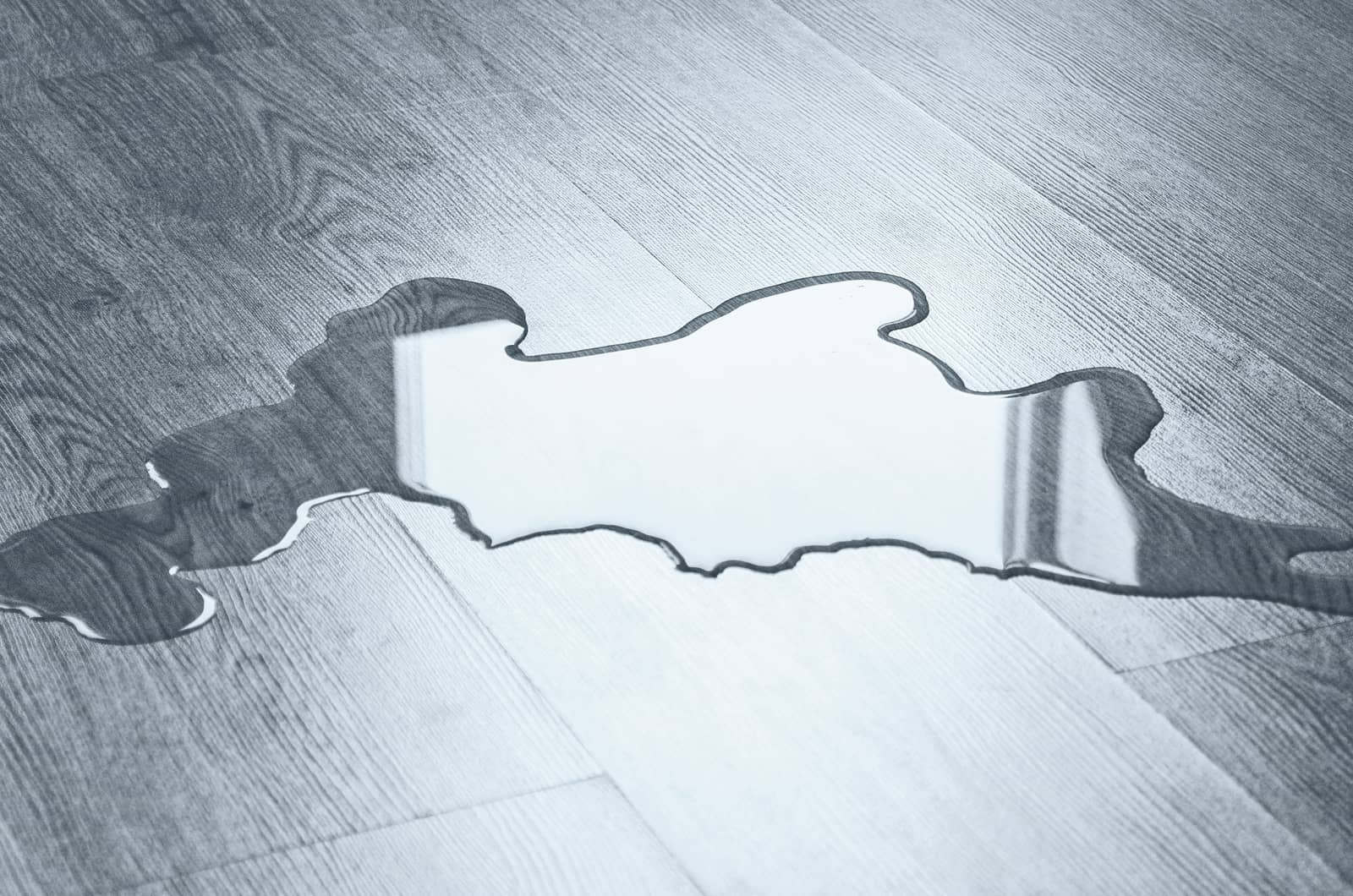
Although cats are considered to be very independent animals, some cats may create a special bond with their owner or other family member or even with another pet.
However, these cats may suffer from separation anxiety when the person or pet, with whom they bonded, is absent.
Thus, the separation anxiety may result in a cat peeing on furniture that has your scent, or similar behavior problems.
The solution to this problem is to provide your cat with a calm and quiet place during your absence. You can put different interesting toys in the room that may occupy your cat’s attention.
You can also place your clothes or other things that contain your scent in the room so that your feline friend wouldn’t feel so alone. That should keep them busy until you return home.
Cat’s Emotional Issues
Cats with emotional issues may result in inappropriate behavior such as peeing around the house. This may be due to a conflict with another pet, such as a cat or dog, or similar.
In order to avoid your cat from having emotional issues, it’s very important to separate them from other pets, if that causes the problem.
When getting a new pet, you should introduce it slowly to your cat. It’ll need some time, but eventually, the new pet should be accepted, just don’t force things!
The most important thing is to provide your cat with a few cat trees so that they’ll have their own where they can relax or escape from another pet, if necessary. The scratching posts are also important as they may redirect her attention.
Related: Why Did My Cat Pee On Me? 9 Reasons + Solutions
Multi-Cat Household
As wonderful as it is to own more cats at once, it may also be very demanding, especially if they aren’t outdoor cats.
It would be best if your cats get along with each other so that you have one less worry . Besides that, you should provide every cat with at least one litter box, which always has to be clean.
In addition, it’s also very important that every cat has its own food and water bowls, cat bed, and toys. In that way, you’ll be able to avoid possible conflicts and tension between them.
Place a few cat trees in their environment, because cats like high places and cat trees are high and safe enough making it a perfect spot for rest and relaxation.
Why Is My Cat Peeing On My Bed?
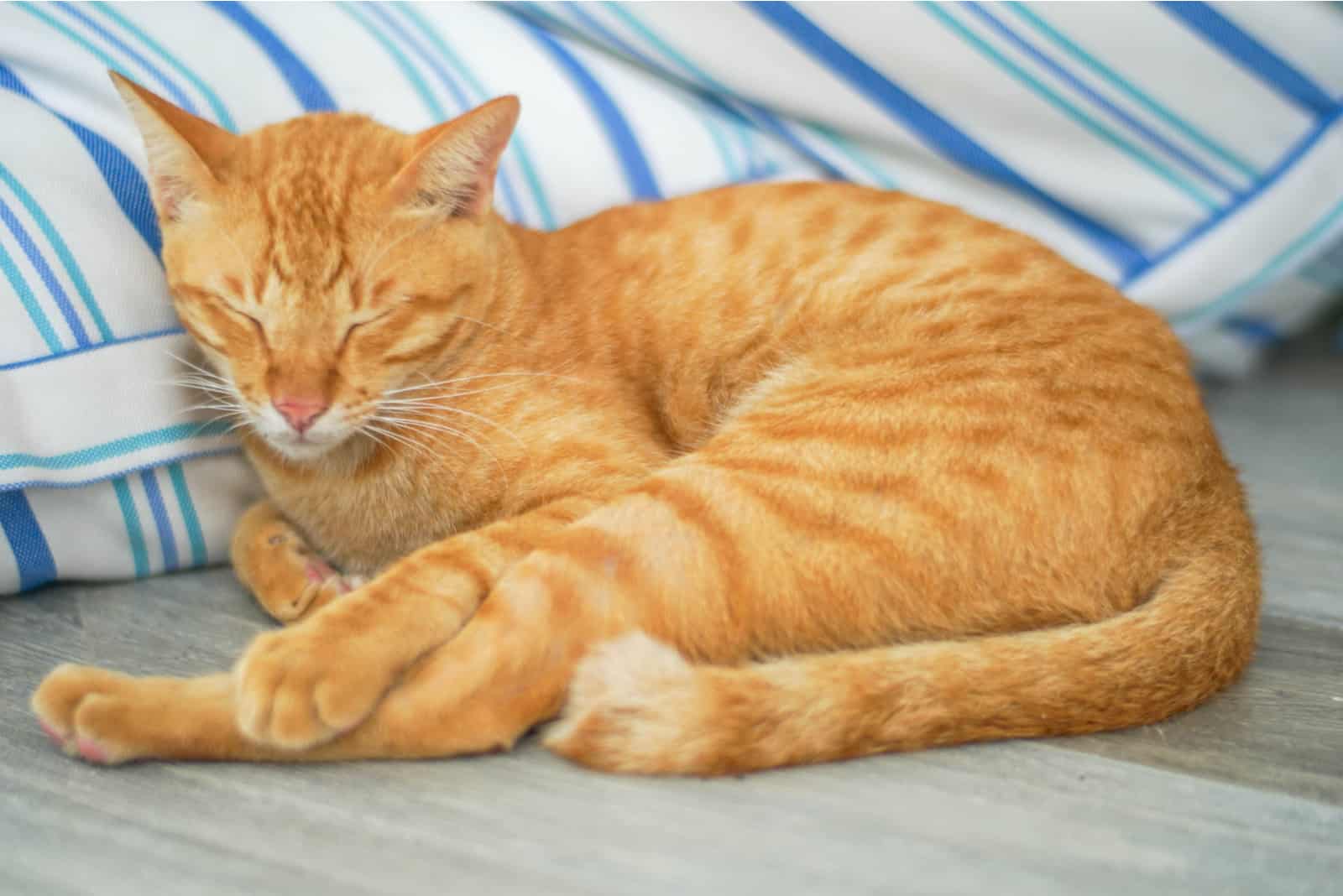
Sometimes you may notice your cat peeing on your bed because it feels the need to mix its scent with yours, but doesn’t have any bad intention by doing this.
This is most likely to happen when your kitty suffers from separation anxiety, and is looking for a place where your scent is the strongest.
You can prevent this by providing your feline with another calm and quiet place, other than your bedroom, and some of your things that contain your scent so that your cat can feel your presence.
Why Is My Cat Peeing On The Couch All Of A Sudden?
A cat peeing on the bed and the couch may have a connection. If you spend a lot of time relaxing on your couch, your cat may urinate on it in order to mix their scent with yours. This usually happens when your cat suffers from separation anxiety.
Other reasons for this behavior may be frustration, distress, or simply marking the territory with their scent, especially when new people or pets come into the environment.
What Can I Do To Stop My Cat From Peeing On Furniture?
Cleaning cat’s pee from your furniture and preventing it from happening again can be a very demanding task for cat owners.
Here, I listed some of the possible solutions that may be helpful for your problem. So, read on to find out what you can do to prevent your cat peeing on furniture.
🐾 Clean your furniture carefully – cats create a really strong urine smell, so that’s why it’s essential to clean your furniture carefully in order to completely remove the cat’s scent. In the event that you don’t completely remove their urine smell, they may detect it and mark the same place again instead of the litter box.
🐾 Couch protector – this may be helpful in order to protect your couch from becoming destroyed by frequent urination. However, this is not a long-term solution, so if nothing else works, maybe the best thing is to consult with an animal behaviorist.
🐾 Neuter your cat – cats may spray your furniture as a way of marking their territory or attracting mates, therefore, neutering your cat may be one of the best solutions to stop this behavior problem.
🐾 Vet-check – if you notice your cat peeing on furniture, it’s important that you take your feline to the vet. They’ll run some tests in order to find out if that particular behavior is due to certain medical causes. They’ll know how to treat health issues which should stop your cat from peeing on your furniture.
🐾 Keep your cat’s litter box clean – keep in mind that most cats won’t use a dirty litter box. So, make sure that you wash it and clean it regularly before putting new litter in the box.
🐾 Size of the litter box – make sure that the size of the litter box suits your cat. Keep in mind that an older cat or a kitten cannot use high litter boxes. Besides that, make sure that the litter box for your cat is a suitable size that will allow your furry friend to feel comfortable moving around in it.
🐾 Other litter box issues – make sure that you’re using the litter that your cat likes the most. Besides that, find a perfect location to put the litter box, far away from food, loud noises, and crowds. Make your cat feel comfortable while peeing or pooping and it may start using it properly.
🐾 Calm your cat – a cat may pee on your furniture because it feels distressed. Calm your cat by providing a calm and quiet place, as well as interesting toys that may redirect their attention. Try not to change or disrupt your cat’s routine. If the changes are inevitable, make sure they’re introduced slowly.
🐾 Pheromone diffuser – you can try using pheromone diffusers which will allow your cat to feel more calm and relaxed in their environment.
🐾 Physical deterrent – physical deterrents such as sticky tape or foil may prevent your cat from urinating and soiling your furniture because they don’t like sticky things. This should distance them from the furniture and they may return to the use of the litter box again, however, it all depends on the underlying cause.
How To Clean Cat’s Pee From The Couch?
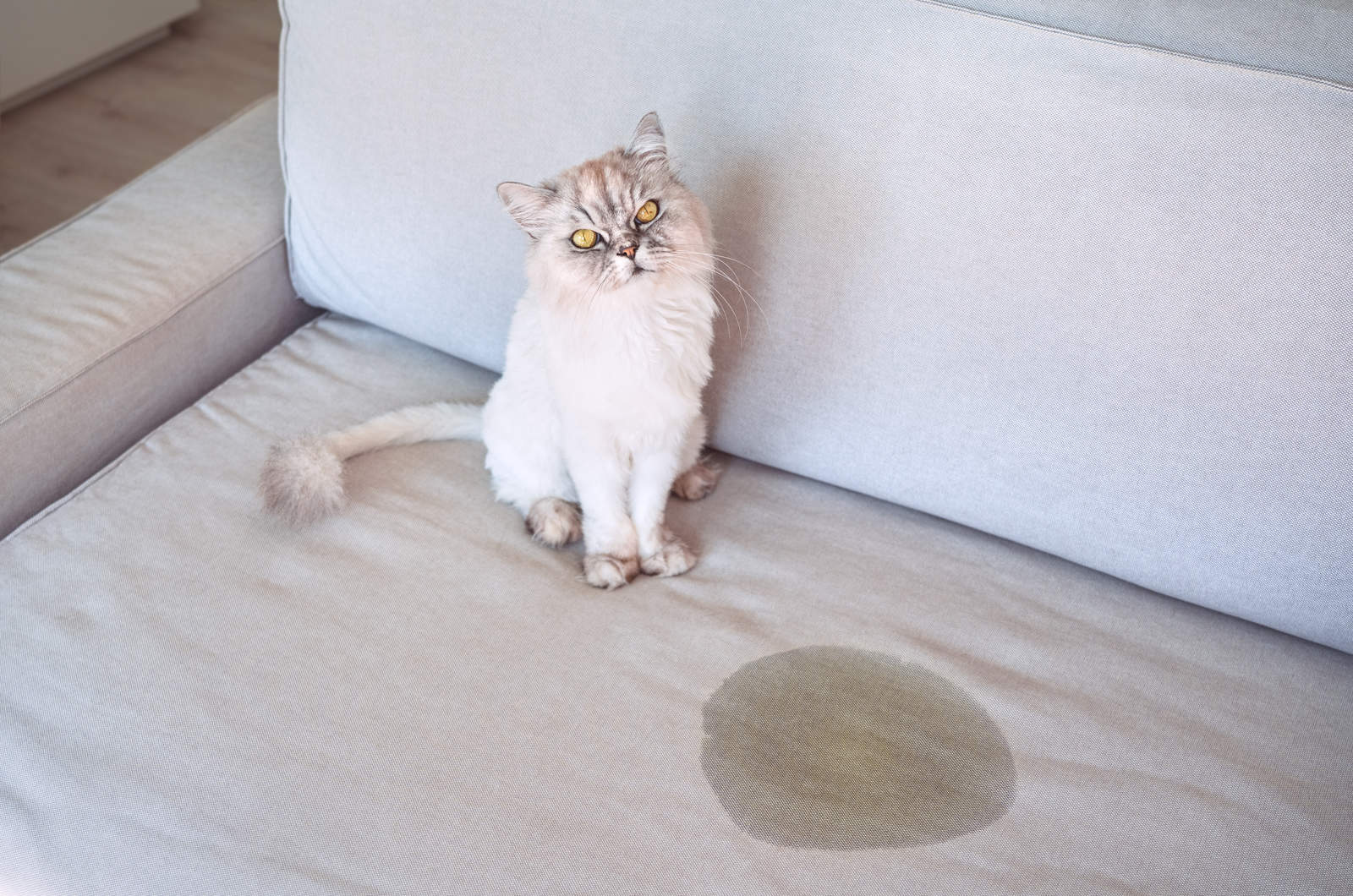
As previously mentioned, cleaning the cat’s pee from the couch thoroughly is very important if you want to stop them repeating this behavior. If you don’t do it properly, the cat’s urine smell will still be present, and your cat may repeat the action.
First things first, if you’re able, you should clean the urine while it’s still wet. Using a cloth, try to soak up the urine as much as possible. If it’s already dried, this step will have no effect.
However, after that, there are a few products that can be found in almost every household and that are perfect for removing the cat’s urine smell from the furniture. So, let’s take a look!
Vinegar
Vinegar is perfect for removing the cat’s urine smell because it’s an acidic liquid that can kill the bacteria that make the urine so smelly.
But how to use it properly:
🐾 Fill a bottle with a mix of half water and half vinegar. Shake it and then spray your furniture, especially the urine spots.
🐾 Make sure it dries completely! You can repeat the procedure after a few hours.
Baking Soda
Baking soda is an excellent choice for both soaking up the urine and removing its smell.
To use baking soda properly you should do the following:
🐾 Put enough baking soda on the urine spot and let it sit for around half an hour.
🐾 After that, vacuum the baking soda from the affected place.
🐾 Repeat the procedure until the urine smell is completely gone.
Enzyme-Based Cleaner
Enzymatic cleaners, that are intended for urine, serve to hasten the chemical reaction. These cleaners kill the bacteria in a cat’s urine, thus removing the nasty smell. Still, I advise you to follow the product instructions on how to use it.
3 Things You Shouldn’t Do!
When cat owners are desperate to solve the main problem, they may try everything but that’s not always a good thing to do. In this case, there are some products which shouldn’t be used as they may make the problem worse.
So, let’s see what you shouldn’t do when removing the urine smell from furniture:
🐾 Bleach – not only won’t it help with the smell, but you can only damage your furniture by trying this as a solution.
🐾Ammonia – it can only worsen the urine smell and encourage your cat to continue peeing on that place.
🐾 Steam cleaner – if you steam clean, the urine may be pushed deeper into your couch, making it even harder to get rid off.
Wrapping It Up…
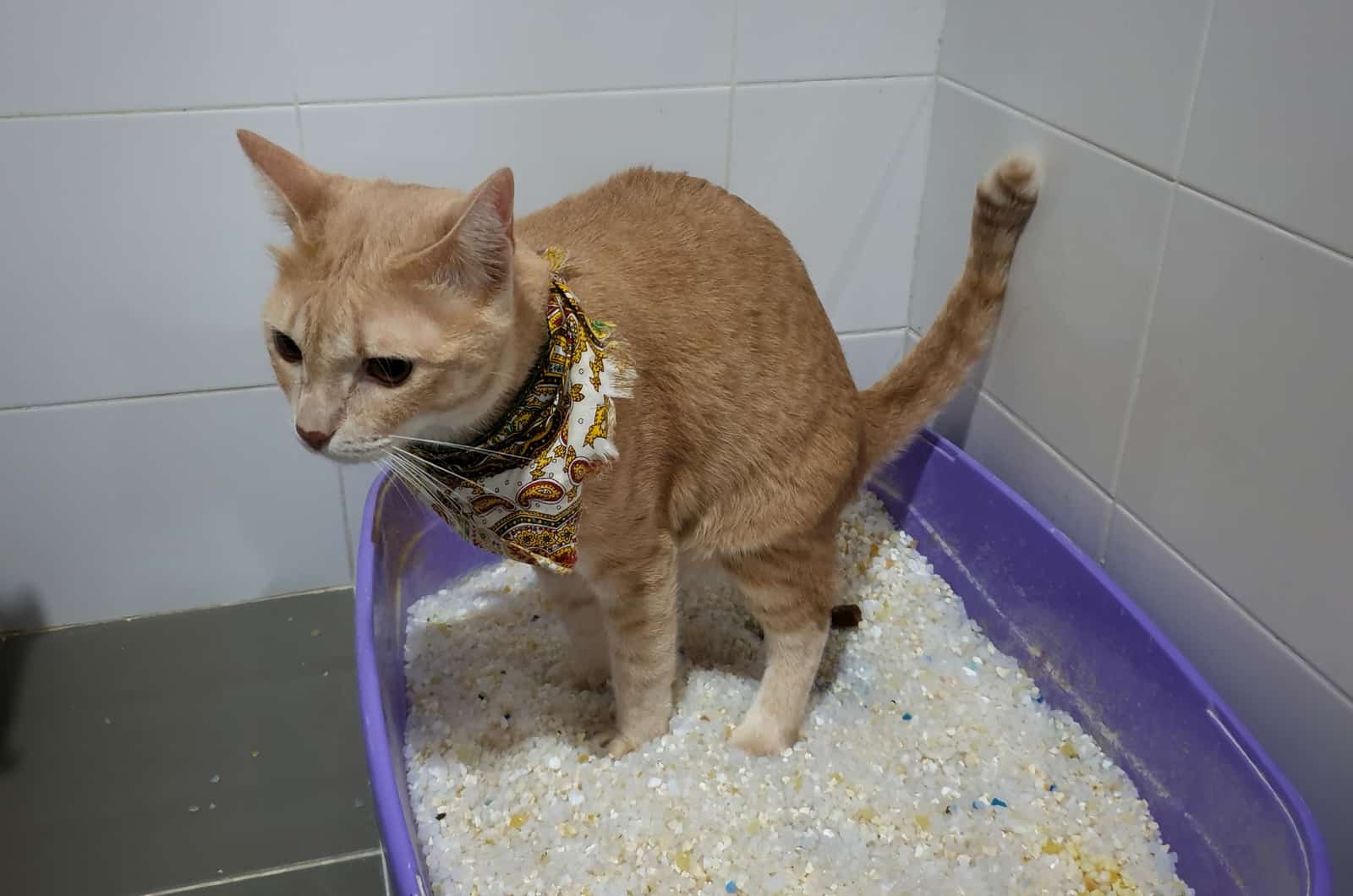
So, to wrap it up! If you notice your cat peeing on furniture, it’s high time to pay more attention to your cat.
This cat behavior may be a consequence of many things, starting from medical conditions that require special vet care, to behavioral issues that you can solve by yourself or with an animal behaviorist’s help.
It’s important to find the underlying cause of this behavior so that you can react properly. Besides that, this article offers you seven possible solutions for this particular behavior. Try the solutions based on the common cause and it may help your kitty.
In addition, you can use household products, such as vinegar or baking soda, for cleaning purposes that should at least reduce the urine smell on your furniture.
I hope I helped you with possible reasons and prevention tips for this behavior problem, and that you and your cat will renew your communication soon!
Related Articles:
Is Your Cat Peeing In Shoes? 12 Ways To Put An End To It
My Cat Peed On My Clothes In Front Of Me: 9 Possible Reasons
Cat Peeing Over Edge Of Litter Box: 13 Reasons And Solutions

